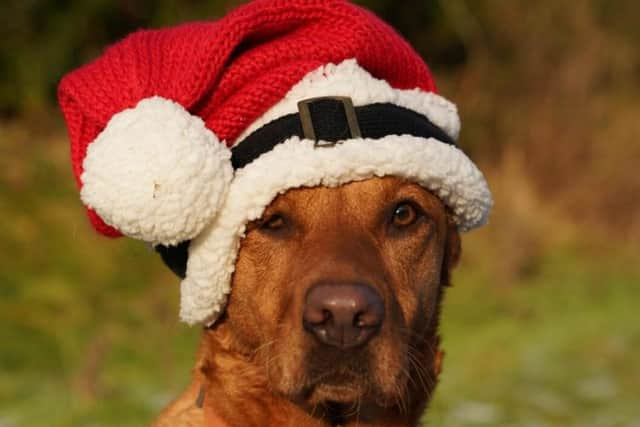From mistletoe to mince pies, dog expert's Christmas danger warning to Milton Keynes pet owners
and live on Freeview channel 276
Rachel Bean travels the country giving canine first aid training, and just in time for Christmas she is warning local pet owners so they can have a safe and healthy season of goodwill.
She said: "December is a busy time for vets and veterinary nurses.
Advertisement
Hide AdAdvertisement
Hide Ad"Extra staff are needed to cover staff holidays especially as veterinary practices are closed for a few days, so the emergency clinics work hard to see through emergencies, as well as Christmas casualties.


"There are many dangers for dogs over this holiday so do make sure you are aware, and that you plan your festive period well, so you and your dogs can relax and have an enjoyable Christmas.
"As they say, an ounce of prevention is worth a pound of cure, or a truckload of vet bills!"
Here are some Christmas dangers that many vets have found to be common this time of year:
Advertisement
Hide AdAdvertisement
Hide AdFoods and Drinks Many festive foods are harmful to dogs, so it is important that all the family and guests are aware of this.Chocolate is a common danger at Christmas as it is often in abundance around the house such as under the tree all wrapped up, in selections boxes or even on the table spread.The cocoa in Chocolate has a chemical called Theobromine, which is a combination of Methylxanthine as well as Xylitol. These are usually found in sugar-free foods such as sweets, mints and chewing gum, as well as some brands of peanut butter. Xylitol is designed for human consumption and takes around 48 hours to digest in the body. However, it only takes about half an hour in a dog’s body and if they have enough, it can cause a hypoglycaemic coma.
Be careful when discarding carcasses and bones, especially any cooked ones because they are brittle and can splinter if your dog eats them and cause serious damage to their mouth, throat, stomach and intestines.
Grapes and raisins, which are typically found in Christmas pudding, mince pies and cooking ingredients, are also a big no-no because they can cause kidney failure to some dogs.
Members of the onion family can also cause haemolytic anaemia in some dogs so do keep them out of reach at all times.It is also important to keep alcohol, macadamia nuts, raw dough and mouldy foods away from your dogs as these can also be very dangerous to your dogs if ingested.
Advertisement
Hide AdAdvertisement
Hide AdOther DangersAttractive Christmas decorations such as glass baubles, fairy lights, tinsel and ornaments can look amazing and impressive but if they are eaten by dogs, especially those made out of glass can cause stomach and gastrointestinal injuries.
The Christmas tree itself can also cause injuries if the needles are licked, eaten or stepped on by your four-legged friend, so it would be a good idea to hoover around that area daily.
Christmas plants such as poinsettia, holly and mistletoe can also cause irritation to the mouth or a stomach upset when they come in contact with your dog’s skin or if eaten.
The last thing to be careful of are Christmas toys . It’s important to make sure the smaller parts of the toys or any batteries are not left on the floor as it could be dangerous if swallowed by your dog. They can cause blockages in your dog’s throat which could lead to needing surgery.
To find out more about Rachel Bean go to www.rachelbean.co.uk .